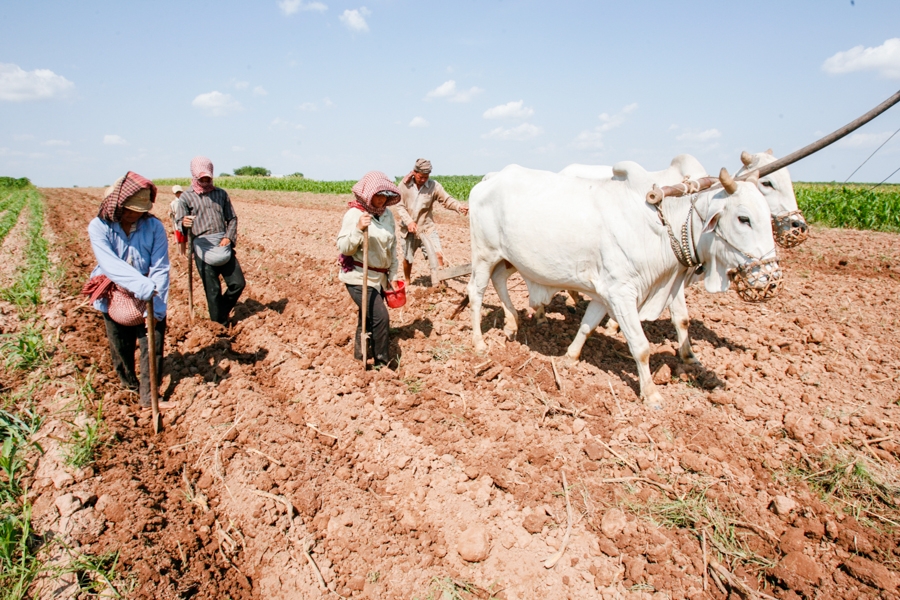Cambodia: Central bank sets interest rate cap
The National Bank of Cambodia yesterday set an interest rate cap of 18 percent per annum for microfinance institutions, deposit-taking MFIs and licensed rural credit institutions to help the poor, curb over-indebtedness and reduce poverty.
However, some industry insiders said the move will have the opposite effect, adversely affecting both financial institutions and the poor by restricting access to loans.
The limitation comes a few weeks after the government intervened amid public confusion to announce that financial institutions were not state-owned.
Others in the industry welcomed the move, but said it was a bit rushed and would slightly affect industry growth.
The national bank announced it decided to set the interest rate cap “to back government policy that protects the people, especially the poor, curbs indebtedness and alleviates poverty as well as protects customers from being charged high interest rates from financial institutions and make the use of credit more effective by disbursing loans with more caution.”
Hout Ieng Tong, the president and CEO of Hattha Kaksekar Limited and president of the Cambodia Microfinance Association, welcomed the move, saying it was good for customers, but said the announcement was a bit rushed after the recent government actions.
“We don’t make any objection to what is set by the government. We are the operators so we always comply with it,” he said.
“But it seems a bit rushed for us as we were just informed to change logos and now the new action comes out. I think there should be time for discussion.
“Each institution has its own strategy, so we’ll see whether it affects the industry just a little or a lot.”
Stephen Higgins, the managing partner of research firm Mekong Strategic Partners, said interest rate caps are poor public policy and hurt the poor the most as it either restricts their access to finance or pushes them into the hands of loan sharks who charge much higher rates.
“At 18 percent, the industry simply wouldn’t be sustainable, and what has been a real success story for Cambodia will end up being a cautionary tale in the way that the MFI crisis in Andhra Pradesh was for the MFI sector in India,” he said.
“From a macro perspective, it’s also going to hurt Cambodia as the MFI sector has pushed a lot of cash into Cambodia’s rural sector in recent years, and that will now reverse.”
Sim Senacheert, the president and CEO of leading MFI Prasac, said the industry has been reducing the interest rate for years, lowering it by more than 20 percent and bringing the industry success from previous interest rates of about 50 percent.
“We already see that the interest rate has been declining from time to time following the market – demand side and supply side,” he said. “My institution is fine as our rate has been declining along with the ceiling rate.
“However, I think the move will affect financial institutions because the industry has high operating costs as we all have branches nationwide and in communes close to customers. We are very different from banks which are mainly in the city,” he added.
“Once the interest rate is low, some institutions will be unsustainable and won’t survive. This will affect customers as they will not be able to easily seek small loans as the institutions will move to larger loans and downsize to curb operation costs.
“This will push customers to seek unofficial money lenders who charge high interest.”
According to the NBC, the interest rate cap will come into force by April 1.
National Assembly spokesman Chheang Vun wrote on his Facebook page that the interest rate cap will be applied to all loans that have already been disbursed.
“Rearrangement of the [loan] procedure is based on clear and accurate standards that have been implemented in France and other countries. So, the 18 percent interest rate cap will not just be implemented to loans after March 13,” he wrote.
“Quite simply, from April most small farmers will not be able to get access to a loan, without going to an unregulated loan shark,” added Mr. Higgins.
Source: http://www.khmertimeskh.com/news/36430/central-bank-sets-interest-rate-cap/


 Thailand
Thailand




